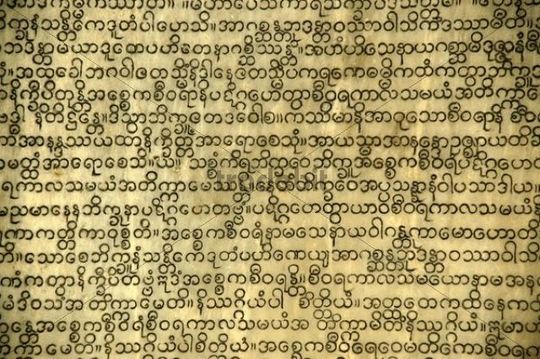
Composed in a range of Southeast Asian literary idioms, nissayas comment on works in Pali, ranging from simple word-by-word glosses to elaborate commentarial and sub-commentarial disquisitions. These linguistically hybrid texts have been used as reference works and pedagogical tools for centuries and have shaped both the transmission of Buddhism and the development of languages and their literatures throughout the region. Knowing how to read nissayas is key to understanding Southeast Asian Buddhism and literary culture. Burma has produced a particularly rich literature, alive and growing right up to the present date.
William Pruitt, author of Étude linguistique de nissaya birmans (Presses de l’École franc̜aise d’ Extrême-Orient, 1994) and a leading expert in the field, will be walking workshop participants through excerpts of a Burmese nissaya on the Milindapañha (“The Questions of King Milinda”), a Pali text from northwestern South Asia, that has enjoyed a special status in Burma. Sections of a printed version of the text, manuscript reproductions, and a transcription of select passages will be shared with the participants to enable them to navigate the text and to translate passages into English. Participants, who should bring with them some knowledge of Pali and/or Burmese, will meet for a total of eleven hours distributed over three days. The workshop will be framed by an introductory lecture to the genre from Dr. Pruitt and by a concluding report on an ongoing Burmese manuscript digitization and archiving project.
Two small bursaries of Canadian $500 each are available for students travelling from outside Toronto.
Organizers: Christoph Emmrich and Anthony Scott
For registration, a detailed programme, reading materials, travel grant application, and for general inquiries, please contact Anthony Scott at anthony.scott@utoronto.ca.

